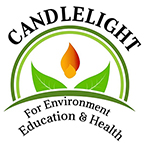Who we are?
Candlelight for Environment, Education & Health was founded in 1995 as a non-profit making organization dedicated to development issues in under-served and/or marginalized communities in Somaliland, as well as in Somalia, Ethiopia, and Kenya.
The force behind the emerge of Candlelight as an organization was the fact that the civil war in Somalia had left behind extensive loss of human lives, destruction of infrastructures and depletion of livelihood of the people. At that time, the needs were many and local development actors were few. Even other similar local institutions were in their nascent stage and lacking the capacity and expertise which is necessary for the delivery of crucial services to civilian communities who had been adversely affected by the civil war.
Since then, the organization has quickly grown from being a nascent institution to a developed effective and credible organization with interventions in all the six regions of Somaliland with special focus on youth, women, children, disabled people and IDPs. Candlelight operates through four main strategic and well positioned offices in Somaliland, Head Office Hargeisa and sub-offices in Sheikh, Burao and Erigavo. The number of staff (core and project based are now over 80 persons) of whom 30 of them are women. This enabled Candlelight to build partnership relations with multiple funding agencies, public institutions and grass root communities.
Candlelight carefully studied the diverse community needs and, then, strategically prioritized its interventions on environmental restoration and protection, provision of quality primary education and skills training, awareness raising on FGM and social health issues and emergency response during drought & outbreaks.
Candlelight has four departments and each carries out a main strategic intervention. The departments manage and implement enormous projects throughout the country. The departments are run by experienced teams with multi-disciplinary and technical skills committed to deliver quality services to the communities in need.
Major areas of focus in each department include:
(a) Environmental Restoration & Protection
- Community trainings on climate change adaptation, environmental protection.
- Training communities on sustainable agriculture practices, nutrients fodder production skills and livestock management practices.
- Environmental protection and restoration through soil and water conservation techniques
- Promoting alternative saving energies.
- Introducing roof water harvesting methods.
- Nurseries management and reforestation program.
- Construction and rehabilitation of water sources (shallow wells & berkads).
- Construction of gabions and sub-surface dams to reduce water floods.
- Creating income generation/diversification activities with focus on pastoral and agro-pastoral communities. This includes Sisal processing, bee-keeping trainings with inputs, farmer’s assistance packages etc.
- Research & documentation.
(b) Provision of Primary Education & Skills Training
- Running vocational skills training centres in Hargeisa, Burao, Erivago.
- Running primary education schools (Burao & Erigavo).
- Promotion of girl-child education through provision of scholarships for displaced, poor and orphaned girls.
- Conducting motivational speeches in the schools.
- Advocacy on gender awareness in education.
- Provision of primary education for pastoralist children.
- Increasing employment opportunity through creation of small business for students.
(c)Awareness Raising on FGM and other Social Health Issues
- Awareness raising program on FGM/C, HIV/AIDS and other sexually transmitted diseases (STDs).
- Community education on the effects of Female genital mutilation/cutting (FGM/FGC).
- Design and production of IEC materials on harmful practices of FGM.
- Conducting sensitization FGM training for teachers, CECs, youth, religious leaders.
- Training for trainers (ToT) training on FGM/C.
- TV and Radio debates.
- Posting articles on FGM/C implications on social media networks.
- Training on hygiene and sanitation in pastoral and agro-pastoral communities.
(d) Humanitarian Response during Drought & Outbreaks
- Facilitator of voluntary returns for IDPs to their origin communities with livelihood recovery support.
- Unconditional cash relief program for disabled and marginalized groups & cash for work during drought aim at boosting social economic situation.
- Water trucking to the affected communities during drought periods.
- Human and livestock health interventions.
- Distribution of food and non-food items (NFI’s).
.

